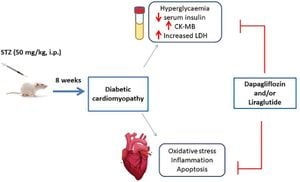The Spanish judiciary has confirmed the continuation of the investigation against Raúl Asencio, the 21-year-old center-back for Real Madrid, who is under scrutiny for allegedly sharing explicit materials featuring a minor. This decision follows the Provincial Court of Las Palmas’s rejection of the footballer’s defense request to dismiss the case due to purported lack of evidence, according to reports from Canarias 7.
The investigation, which has attracted significant public attention, commenced after the mother of the 16-year-old girl reported the unauthorized distribution of a sexual video through various messaging platforms, including WhatsApp. Allegations assert the video was shared without the girl's consent, sparking concerns about the rising issue of digital privacy and the interaction of youth with technology.
Alongside Raúl, three other former players from Real Madrid C—Ferran Ruiz, Juan Rodriguez, and Andres Garcia—are also implicated. All four were reportedly involved with the creation and dissemination of the material, raising alarms about the behavior of youth athletes and the accountability of sports organizations.
The incident alleged to have taken place on June 15, 2023, was kept under wraps until it gained media traction earlier this year. The legal repercussions for those found guilty can be severe, with punishment for child pornography distribution ranging from three and-a-half to five years of imprisonment under Spanish law.
While the accused maintain their innocence, claims have emerged indicating attempts to mislead the victim and destroy evidence instead of cooperating. "One of the suspects claimed he showed the video, with records indicating it was received via WhatsApp," reported The Sun, which has extensively covered the developing situation.
Raúl, who has recently elevated his career by earning regular appearances with Real Madrid’s main team, has also faced backlash from the media and the public as the allegations continue to unfurl. The club itself has stated it is aware of the judicial proceedings concerning its young players and is committed to monitoring the situation closely without making premature decisions.
The court determined there are 'reasonable indications' of criminal activity, which solidifies the seriousness of the continuing investigation. This is not merely about individual actions; it reflects broader social problems concerning underage exploitation and the unstoppable age of technology, where privacy breaches can occur with disturbing ease.
Not only does this case highlight the potential dangers teenagers can face, but it also raises questions about how society and athletic institutions handle issues of consent and responsibility among young adults. Many feel there should be stricter guidelines and education on digital conduct, especially for those immersed within influential sporting environments.
Human rights advocates have been vocal about the need for systemic change to protect minors from such traumatic incidents and to hold accountable those who weaponize sharing explicit content without the consent of involved parties.
Looking forward, Raúl’s participation with Real Madrid will draw scrutiny as the Champions League playoffs loom over the club. He is poised to play against Manchester City, underscoring the club's intention to keep him on the team amid serious allegations, thereby raising questions about the balance between maintaining competitive integrity and addressing misconduct.
Raúl’s situation remains precarious, with his future career hinging not only on his performance on the field but also on the legal battles he is facing. Should he be found guilty, the ramifications could extend far beyond the pitch, affecting lives and futures on multiple fronts.
This case amplifies everything from the responsibilities of professional athletes to the importance of safeguarding minors against exploitation, reinforcing the call for accountability and reform.
With the world watching closely, the outcomes of this investigation may well set important precedents for how similar cases are handled going forward. The intersection of youth, technology, and law remains fraught with challenges, and the need for ethical standards has never been more urgent.



